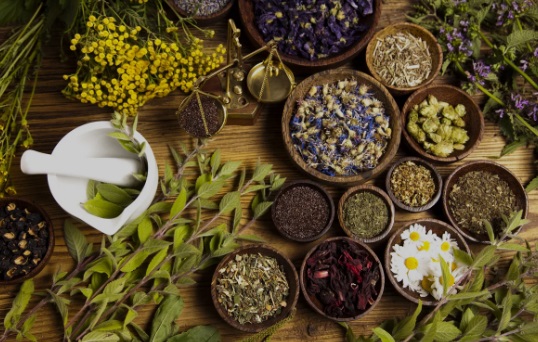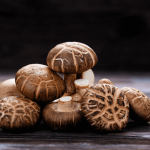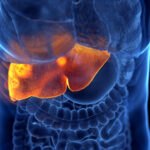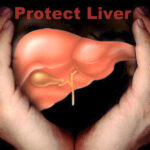What is the best herb to detox your liver?
What is the best herb to detox your liver? Have you asked a question like this before? Well, to begin, the liver, situated in the upper right part of the abdomen, is indispensable for maintaining overall health through its performance of over 500 vital functions.
Among its crucial roles, the liver cleanses the blood by removing toxins, metabolizes medications, synthesizes essential proteins, and secretes bile to aid in digestion.
Given its pivotal functions, ensuring liver health is paramount for overall well-being. However, liver diseases are increasingly prevalent.
According to the American Liver Foundation, nearly 100 million Americans are affected by various liver conditions such as fatty liver disease, hepatitis, and cirrhosis.
These statistics underscore the importance of preventive measures to safeguard liver health. While conventional medical treatments are crucial, there is also a growing interest in natural remedies, particularly herbal options.
Turmeric, milk thistle, artichoke, and dandelion root have been esteemed in traditional medicine for their potential benefits to liver function. This article delves into the roles of these four herbs in supporting liver health and enhancing liver function.
Top Herbs for Liver Health
Milk thistle, turmeric, dandelion root, and artichoke are renowned for their roles in promoting liver health and supporting its vital functions.
Milk Thistle and Liver Detoxification
Milk thistle, scientifically known as Silybum marianum, has been traditionally used for centuries to bolster liver health. The key active component in milk thistle is silymarin, a complex of flavonolignans known for their antioxidant, anti-inflammatory, and antifibrotic properties.
Silymarin supports liver function by mitigating oxidative stress, stimulating the regeneration of liver cells, and forming a protective shield against harmful substances that can cause liver damage.
Clinical studies have substantiated milk thistle’s hepatoprotective effects. It has been shown to slow the progression of liver diseases such as alcoholic hepatitis, cirrhosis, and non-alcoholic fatty liver disease.
Additionally, milk thistle enhances detoxification processes, reinforcing the liver’s capacity to metabolize and eliminate toxins from the body.
Turmeric for Liver Inflammation
Turmeric, known for its vibrant yellow color, contains curcumin, a potent bioactive compound celebrated for its anti-inflammatory and antioxidant properties.
Curcumin effectively combats oxidative stress by neutralizing free radicals and modulates various cellular pathways associated with inflammation, thereby offering comprehensive protection to the liver and other organs.
Research indicates that curcumin is beneficial in managing liver diseases by reducing inflammation, countering oxidative stress, and promoting the regeneration of liver cells. Its multifaceted therapeutic properties position curcumin as a valuable preventive measure and complementary treatment option for liver health.
Dandelion Root
Dandelion root has a long history in traditional medicine for supporting liver health. It is often sought after for its potential to enhance liver function and aid in detoxification processes.
Although recent studies have primarily been conducted on animal models, they suggest that dandelion root may indeed benefit liver function, assist in detoxification, and potentially shield the liver from damage.
However, further research involving human subjects is necessary to validate these preliminary findings conclusively.
Artichoke
Artichokes contain notable bioactive compounds, including cynarin and silymarin, which are believed to possess liver-protective properties. These compounds are thought to stimulate bile production, thereby aiding digestion and enhancing detoxification processes in the liver.
Studies on artichoke extract indicate that it can improve liver function by safeguarding liver cells and optimizing detoxification pathways, which consequently leads to reduced levels of liver enzymes such as AST and ALT.
Incorporating Herbs into Daily Life
Integrating herbs such as turmeric, milk thistle, artichoke, and dandelion root into your daily routine can significantly support liver health. Each herb offers unique benefits that complement overall liver function and detoxification processes.
Considerations for Dosage and Form
- Turmeric: Available in capsule form, turmeric capsules provide a concentrated dose of curcumin, its active ingredient. Capsules ensure consistency in dosage and are preferred by individuals seeking potent benefits without the distinctive taste.
- Milk Thistle: Similarly found in capsule or extract form, milk thistle supplements deliver silymarin, the primary bioactive compound known for its hepatoprotective properties.
- Artichoke: Available as capsules or extracts, artichoke supplements offer concentrated doses of cynarin and silymarin, supporting bile production and liver detoxification.
- Dandelion Root: Versatile in its forms, dandelion root can be enjoyed as a tea or taken as capsules or extracts for a more concentrated effect.
Choosing the appropriate dosage depends on individual health needs, the specific liver condition being addressed, potential interactions with medications, and guidance from a healthcare provider.
It’s crucial to discuss the use of herbal supplements with a professional to ensure safe and effective integration into your health regimen.
Potential Herb Interactions and Contraindications
When incorporating herbs like milk thistle, turmeric, artichoke, and dandelion root into your health regimen, it’s crucial to be mindful of potential interactions and contraindications:
Milk Thistle:
- Interactions: Milk thistle can interact with medications that affect liver function. If you are taking antipsychotics, seizure medications, anesthesia drugs, birth control pills, or hormone replacement therapy, consult your healthcare provider before using milk thistle.
- Metabolism: Milk thistle may affect how the liver metabolizes drugs. Exercise caution if you are on medications for allergies, cholesterol, anxiety, blood thinners, cancer treatments, or other medications processed by the liver.
Turmeric:
- Blood-Thinning: Turmeric has blood-thinning properties and may enhance the effects of medications like anticoagulants (blood thinners). Use caution if you are taking these medications.
- Stomach Acid: Turmeric can interfere with medications that reduce stomach acid. Monitor your response if you are on medications for acid reflux or ulcers.
Artichoke:
- Liver Processing: Artichoke may affect the liver’s processing speed for certain medications, potentially altering their effects. Individuals taking medications for diabetes or high blood pressure should monitor their levels closely due to possible intensified drug effects.
- Side Effects: Artichoke may cause digestive issues. Those with bile duct obstructions or allergies to the Asteraceae/Compositae plant family should use it cautiously.
Dandelion Root:
- Liver Processing: Dandelion root can influence the liver’s processing speed for medications, affecting their overall effectiveness. Exercise caution if you are taking medications for diabetes or antibiotics.
- Special Considerations: Individuals with bleeding disorders or allergies to ragweed-related plants should approach dandelion root with caution. If you have surgery scheduled, inform your healthcare provider about dandelion root use due to potential risks of increased bleeding or interaction with anesthesia.
Before starting any herbal supplements, especially if you are on medications or have existing health conditions, consult with a healthcare professional.
They can provide personalized advice based on your health status, potential interactions, and the specific properties of each herb.
What is the best herb to detox your liver? (Other Herbs for the Liver)
Apart from turmeric, milk thistle, artichoke, and dandelion root, there are several other herbs that are known for their potential benefits to liver health.
Here are some additional herbs often used in traditional medicine and increasingly studied for their effects on liver function:
- Schisandra: Known as Wu Wei Zi in Traditional Chinese Medicine, schisandra berries are prized for their adaptogenic properties and are believed to support liver health by enhancing detoxification processes and reducing inflammation.
- Burdock Root: This herb is well-regarded for its cleansing properties and is thought to support liver function by aiding in the elimination of toxins from the body. It’s often used as a diuretic and blood purifier.
- Ginger: Beyond its culinary uses, ginger has anti-inflammatory properties that may benefit liver health by reducing oxidative stress and inflammation. It’s commonly consumed as a tea or added to foods.
- Licorice Root: Known for its sweet flavor, licorice root is used in traditional medicine to support liver health by promoting detoxification and protecting liver cells from damage. However, it should be used cautiously due to its potential effects on blood pressure and electrolyte balance.
- Cilantro (Coriander): This herb is rich in antioxidants and has been studied for its potential to help remove heavy metals and other toxins from the body, which indirectly benefits liver health.
- Ginseng: Asian and American ginseng varieties are both used traditionally to support overall health, including liver function. Ginseng is believed to have antioxidant and anti-inflammatory properties that could benefit liver health.
- Peppermint: Known for its soothing properties, peppermint may support liver health by aiding in digestion and reducing inflammation. It’s often consumed as a tea or used in culinary preparations.
- Yellow Dock: This herb is traditionally used as a blood purifier and liver cleanser. It’s believed to stimulate bile production and improve digestion, thereby supporting liver function.
- Milk Thistle Seeds: Apart from the standardized extract (silymarin), milk thistle seeds themselves are used in traditional herbalism for liver support, offering similar benefits to the extract but in a less concentrated form.
- Chanca Piedra: Also known as “stone breaker,” chanca piedra is traditionally used in South American herbal medicine to support liver and kidney health. It’s believed to have diuretic and liver-protective properties.
These herbs can be consumed in various forms, including teas, capsules, extracts, or as part of culinary dishes. Always consult with a healthcare provider or herbalist before starting any new herbal regimen, especially if you have existing health conditions or are taking medications, to avoid potential interactions or adverse effects.
Lifestyle Changes to Complement Herbal Liver Support
Achieving optimal liver health involves more than just herbal supplements. Here are essential lifestyle changes to support liver function alongside herbs like turmeric, milk thistle, artichoke, or dandelion root:
- Nutritious Diet:
- Whole Foods: Emphasize a diet rich in whole grains, lean proteins (such as fish, chicken, tofu), and plenty of fresh fruits and vegetables. These foods provide essential nutrients and antioxidants that support liver function and overall health.
- Antioxidants: Include foods like berries, leafy greens, and cruciferous vegetables (like broccoli and Brussels sprouts), which are high in antioxidants that help protect liver cells from damage.
- Hydration:
- Ample Water: Drinking sufficient water supports the liver’s detoxification processes by flushing out toxins and waste products from the body. Aim for at least 8-10 glasses of water daily, adjusting based on your activity level and climate.
- Regular Exercise:
- Stimulates Liver: Engage in regular physical activity, such as brisk walking, jogging, swimming, or yoga. Exercise stimulates blood circulation and helps the liver function optimally.
- Weight Management: Maintaining a healthy weight is crucial as obesity can contribute to fatty liver disease and other liver-related issues.
- Reduce Alcohol and Tobacco Use:
- Liver Protection: Limit alcohol consumption and avoid smoking. Both alcohol and tobacco introduce toxins into the body that can strain the liver and lead to liver damage over time.
- Stress Management:
- Healthy Coping: Practice stress-relieving techniques such as meditation, deep breathing exercises, yoga, or spending time in nature. Chronic stress can contribute to inflammation and impact liver health negatively.
- Rest and Relaxation: Ensure adequate sleep and take breaks throughout the day to rest and recharge, promoting overall well-being and reducing stress levels.
By integrating these lifestyle changes with the use of herbal supplements like turmeric, milk thistle, artichoke, or dandelion root, you can optimize liver health and support its vital functions effectively.
What are the pros and cons of a vegan diet?
How Do You Feel When Your Sugar Is Low?
Benefits of Cloves to The Vagina

A graduate of Computer Science and Information Management Technology. Diploma – Caregiving, Certificates – Dementia and Diabetes Awareness and Management. A researcher, blogger, songwriter, singer and acoustic guitarist. Born in an environment where natural talents such as healing are imparted at our natural birth. This natural talents of healing is the result of our genetic inheritance and the training from family environment.












